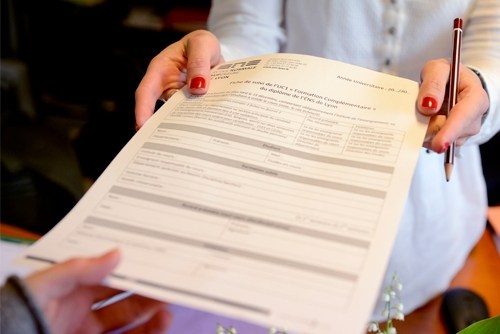Description du projet
Inflammation is a highly regulated process that acts as a first line of defense against pathogens infections. Triggered by cellular pattern recognition receptors (PRRs) that recognize specific microbial components and endogenous or exogenous non-microbial components, activation of inflammation induces a dynamic and coordinated gene expression program that leads to the production of cytokines and chemokines to attract effector cells to the site of infection. Although a robust inflammatory response is required for efficient clearance of pathogens, uncontrolled or prolonged inflammation can lead to inflammatory disorders such as septic shocks or to autoimmune diseases like lupus. Most studies have focused so far on the transcriptional control of the inflammatory gene expression program. However, post-transcriptional regulatory mechanisms involving mRNA splicing, mRNA decay or translation have also been described to control the inflammatory response. Among these, regulation of mRNA translation allows for rapid and reversible modulation of gene expression but its precise role and control mechanisms in the inflammatory response remain poorly understood. Using innovative technologies, our project aims at characterizing the role of ribosomes and mRNA translation in regulating the inflammatory response. In particular, we propose to identify the complete set of of ribosome accessory proteins and to determine their role in the context of “specialized ribosomes” with specific regulatory activities. We will also study the cross-talks between ribosomes and other cellular processes such as mRNA decay and uncover the role of mRNA editing in regulating translation during the inflammatory response. From this work, we expect to identify new regulatory mechanisms that orchestrate inflammation as well as cellular factors that could represent new therapeutic targets for the design of drugs modulating inflammation.
Financement ERC :
1 499 720 €
Durée :
Du 1er janvier 2019 au 31 décembre 2023
ERC Starting Grant
Les subventions ERC Starting Grant sont destinées aux jeunes chercheurs possédant entre 2 à 7 ans d’expérience depuis l’obtention de leur doctorat. L'objectif des bourses Starting Grant est de permettre à des jeunes scientifiques de constituer leur équipe de recherche autour d'un thème original. Les recherches doivent être menées dans un institut de recherche public ou privé situé dans un État membre de l’UE ou un pays associé. La durée de la bourse est de 5 ans et les critères de sélection sont l'excellence scientifique du projet et du chercheur qui le porte. Ce dernier doit faire preuve de son indépendance scientifique et de sa capacité à assumer la gestion de son projet.
Chercheur
 Emiliano Ricci
Emiliano Ricci
Chargé de recherche
Centre international de recherche en infectiologie (CIRI)
actuellement au Laboratoire de biologie et modélisation de la cellule (LBMC)
Page personnelle d'Emiliano Ricci
Discipline(s)
Mots clés







